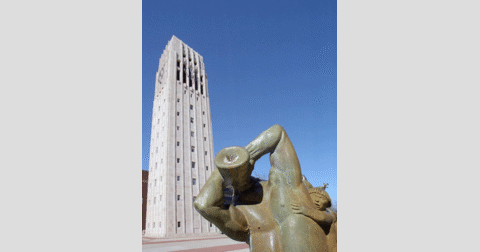U-M demands COVID-positive students leave campus housing
University recommends hotel stays for college students who fall sick, without accounting for cost
The University of Michigan has implemented a new COVID-19 isolation policy for students who live on campus and test positive for the virus. Students who test positive for COVID-19 are asked to leave campus for at least five days, unless symptoms persist or the student has a weak immune system.
And the restrictions do not stop there.
“Make an isolation plan,” the university says, “which could include relocating to your permanent residence, staying with a nearby relative or friend, or finding a hotel space.”
U-M warns that the policy is not merely a helpful hint.
“The isolation guidelines below need to be met,” the policy statement reads. And they apply even to people living in a single room.
Read U-M’s COVID isolation policy for yourself
The university calls for isolation even for students who are kicked temporarily off campus. Such students, U-M says, may use public transportation and may allow one other person in the car if there is no personal vehicle available.
A student can quarantine in a home off-campus, the university advises, so long as “you will have access to your own closed-door bedroom.”
The student who has to share a bathroom with one or two others is required to clean and disinfect the space after every use.
Many students attending the university have a primary residence outside the state and may not be able to afford to travel to their primary residence.
If a student is kicked off campus to a hotel because of the threat of spreading the virus, this transfers the risk to unsuspecting vacationers or business people staying at the same hotel.
“Isolation and quarantine are standard practices for preventing the transmission of many infectious diseases including COVID-19, measles, tuberculosis, and many others,” university spokesperson Kim Broekhuizen told CapCon in an email. “Other diseases would be addressed accordingly if they were seen in our campus population.”
When asked about the possibility of transferring the risk of transition to hotels, Broekhuizen said, “Isolation and quarantine are standard practices for preventing the transmission of many infectious diseases, including COVID-19, measles, tuberculosis, and many others.”
An official with the Mackinac Center for Public Policy dismissed the new policy. “These new rules are empty gestures, because they are impossible to enforce and apply only to students who voluntarily test and report their results,” said Michael Van Beek, director of research. “After all the classroom closures, virtual lessons, mask and vaccine mandates failed, here are university officials still fighting a futile battle against an easily transmissible virus that poses virtually no threat to healthy college-age students. They should let the kids get on with their lives already.”
Editor’s note: This article has been updated since it was published, by adding quotes from the University of Michigan and the Mackinac Center for Public Policy.
Michigan Capitol Confidential is the news source produced by the Mackinac Center for Public Policy. Michigan Capitol Confidential reports with a free-market news perspective.


 Ann Arbor Summertime Festival rakes in the cash from U of M, state taxpayers
Ann Arbor Summertime Festival rakes in the cash from U of M, state taxpayers
 Ann Arbor spent $4.5 million of its ARPA funds on solar panels
Ann Arbor spent $4.5 million of its ARPA funds on solar panels